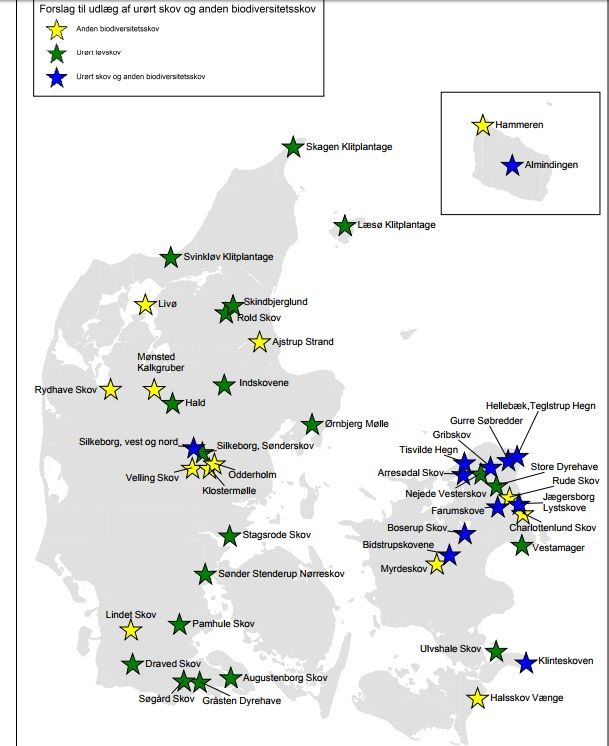The government has teamed up with Dansk Folkeparti (DF) in a bid to increase the amount of pristine and untouched forest in the country.
Overall, some 13,300 hectares across 45 forests in Denmark will be part of the new plan – including the complete abandonment of logging activity in a number of forests such as in Gribskov, Silkeborgskovene, Gråstenskovene, Klinteskoven on Møn and Skagen Klitplantage.
“Today we launch a historic effort for the Danish forests. The government has pledged that a fifth of state-owned forests will be designated as biodiverse forests,” said the minister for food and environment, Esben Lunde Larsen.
“The designations are based on solid foundations from a number of Denmark’s leading researchers. I want to thank them for their expertise and giving us a good pretence for our political work.”
The plan is part of the ‘Aftalen om Naturpakken’ package that the government signed back in 2016, which set aside almost 90 million kroner for forestry efforts from 2016-2019.
See a map depicting the forest plan below.
READ MORE: 100 million kroner pledged to untouched Danish forests
Assembling a pack
In related news, with the arrival of wolves in Denmark, there is a need for breeding regulations to control their population, said Larsen.
But the regulations must occur at an EU level, as the animal is protected by EU legislation, according to the minister.
“We are looking into the possibility of gathering the countries in the EU that have issues with wolves so together we can influence the EU Commission and see whether there is a need to adjust the regulation of wolves,” said Larsen.
As it stands, it is permitted to shoot so-called ‘problem wolves’ that display behaviour deemed threatening to humans.
















